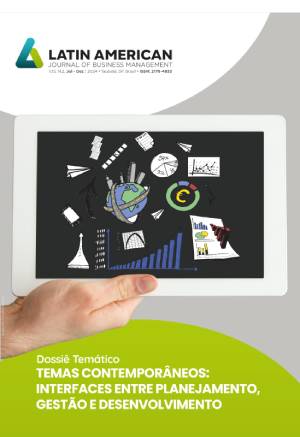PAYMENT FOR ENVIRONMENTAL SERVICES LAW: HISTORY AND CHALLENGES
HISTÓRICO, DESAFIOS E IMPLICAÇÕES ECONÔMICAS
DOI:
https://doi.org/10.69609/2178-4833.2024.v15.n2.a794Abstract
The objective of this study was to analyze Brazilian environmental public policies, especially regarding payment for environmental services, comparing the processes carried out in the United States, Costa Rica, and France. The applicable laws, the evolution over time, and the challenges as a public policy, especially Law No. 14,119/2021, were evaluated. The study also presents the financial valuation in relation to payment for environmental services. The research was carried out through a literature review and documentary analysis. The importance of environmental conferences, such as the Stockholm Conference, Rio 92, and the COP(s) and their repercussions in Brazil for the maturation of the idea of an environmental economy, the economic valuation of natural resources that culminated in payment for environmental services, as an incentive for environmental preservation, was verified. Regarding comparative law, it was inferred that the enactment of the general regulation occurred late, although payment policies for environmental services were implemented by municipal laws in the country. The results also show the analysis of applicable laws and their evolution over time, and that payment policies for environmental services are more effective when there is continuity of projects, as was the case in the municipality of Extrema (MG, Brazil).
Downloads
Published
How to Cite
Issue
Section
License
O Conselho Editorial, bem como as instituições mantenedoras do periódico, não se responsabilizam pelas opiniões, idéias e conceitos emitidos nos textos, por serem de inteira responsabilidade de seu(s) autor(es).
Os autores, uma vez que receberem o aceite de publicação, automaticamente cedem, sem qualquer ônus, os direitos autorais, inclusive tradução, para o Latin American Journal of Business Management. A citação parcial de artigos publicados é autorizada sem restrições desde que seja identificada a fonte.





